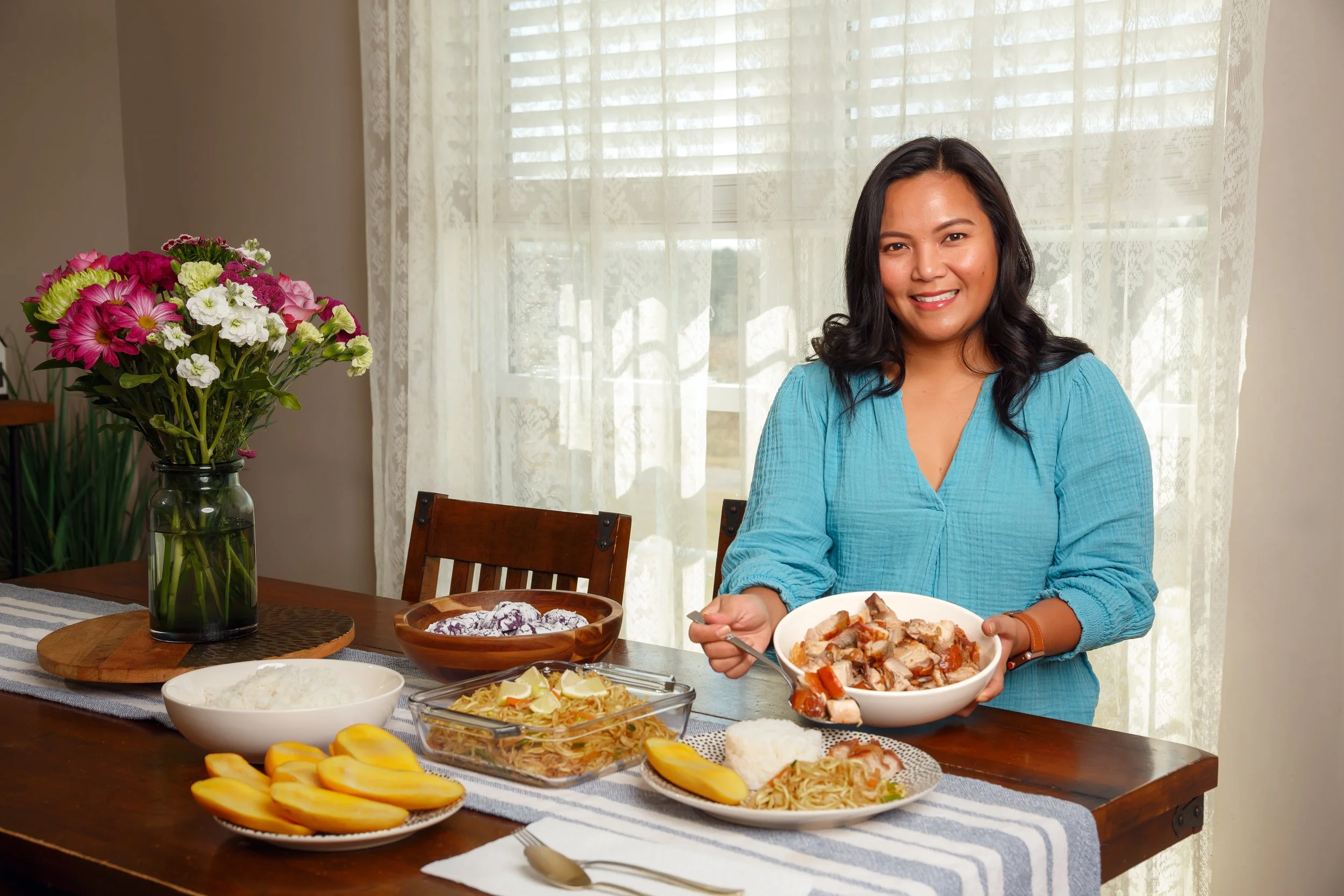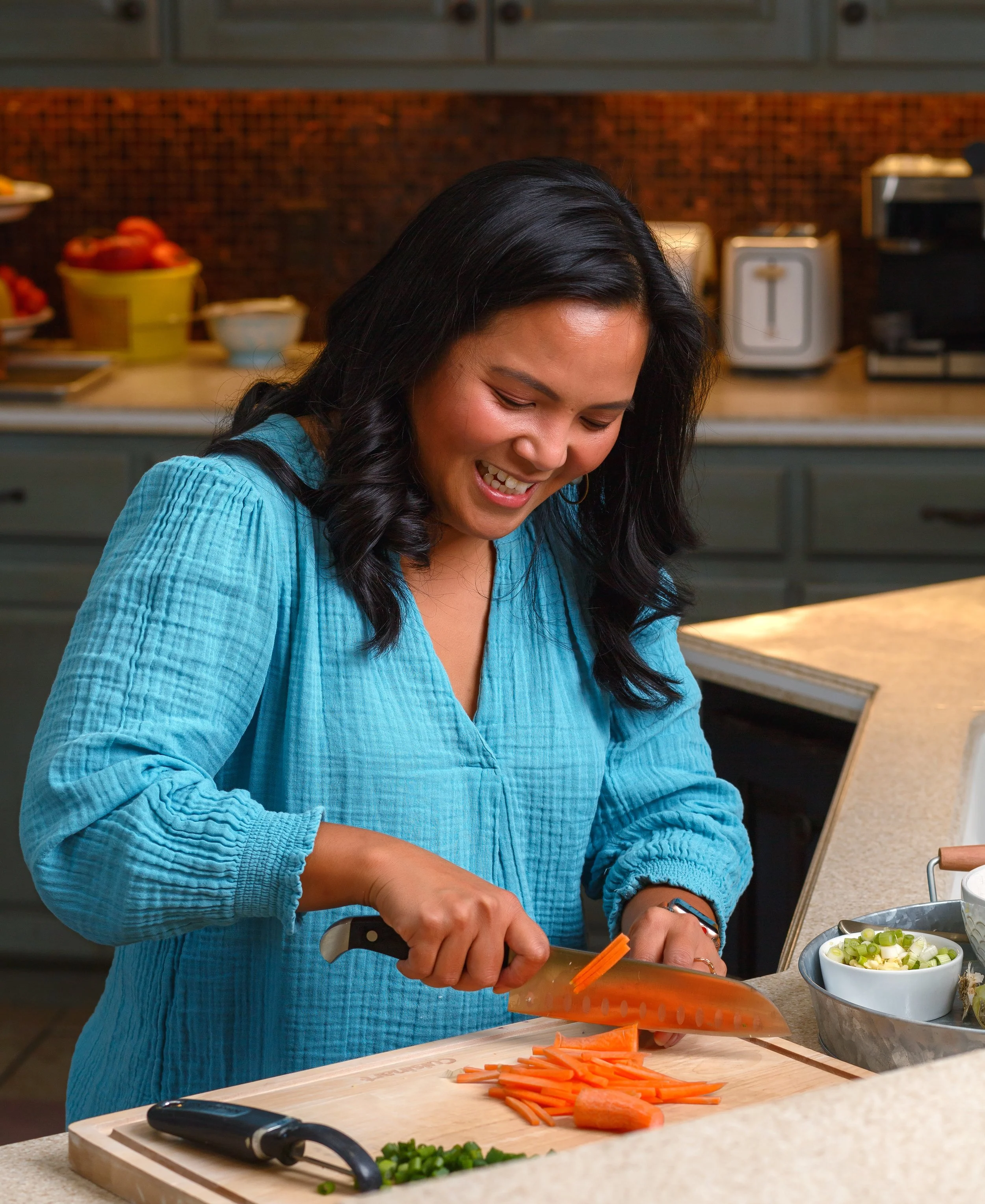A Taste of Home
How Ricsan Souders Brings Filipino Flavor to the South
Words by Jenny Lynn Davis | Images by Ryan McGill
On any given day, the enticing aromas of traditional Filipino dishes waft through Ricsan Souders's kitchen.
For Ricsan, who has lived in the United States for more than a decade, cooking Filipino food is a way to connect with her heritage and build bonds with her neighbors in her adopted Southern home.
Born and raised in the Philippines, Ricsan grew up in a home where food was a constant source of warmth and connection. Her mother, a former restaurant owner and caterer, set the tone, embodying the spirit of Filipino hospitality with every meal she served.
"She made feeding a thousand people look effortless," Ricsan laughs. "She was like the mom to everybody and she’s still the sweetest woman I've ever known."
Food was central to Ricsan's childhood, woven into everyday life. From church gatherings to outreach events in remote villages, the act of feeding others was as much about community as it was about sustenance.
"Food is a big part of showing hospitality in the Philippines," Ricsan explains. That ethos continues to guide her interactions with her Southern community today.
Ricsan's foray into sharing her cooking began with encouragement from friends. After years of seeing photos of her homemade meals on Facebook, her friends urged her to share her cooking with others.
At first, she cooked for those friends, enjoying the happiness a well-prepared meal brought to them.
"I think it's something any cook understands when you make food that makes people happy and satisfies them, it's priceless," she says.
In 2024, Ricsan took the next step, offering homemade plates to the broader community. Orders are placed through Facebook, with pickups arranged at the Harbin Company of RealtySouth office in Jasper, where she works as a realtor.
The response has been overwhelmingly positive, with friends and neighbors raving about her flavorful dishes. Pancit (a noodle dish) and lumpia (Filipino-style spring rolls) quickly became crowd favorites.
In many ways, Ricsan sees parallels between her Filipino culture and the values she's discovered in the South. The emphasis on hospitality, food as an expression of love, and tight-knit community values are shared in both cultures.
"In both cultures, food and hospitality go hand in hand," she says. “That's something I've always appreciated about living here."
The shared traditions and warmth of Southern culture have made living in rural Alabama a natural fit for her family. She keeps her cultural traditions alive for her husband, Tyler, and their children, Gavin, Amelia, and Olivia, by regularly preparing Filipino dishes that bring a taste of her heritage into their everyday lives.
Despite the growing demand for her food, Ricsan has no plans to turn her passion into a full-fledged business.
"My mom owned a restaurant, so I know how much hard work it takes. While it's fulfilling, I don't think I want to open a restaurant," she says.
A food truck is not off the table, though. She sees it as a fun potential retirement project, a way to share her food without the full-time commitment of running a restaurant. Still, for now, she's happy with the way things are.
As Ricsan continues to introduce her community to the bold, comforting flavors of Filipino cuisine, she is also creating something even more meaningful: connections. Through every dish she shares, she bridges the gap between two cultures, blending the warmth of her homeland with the hospitality of the South.
"Food connects people," she says. "It's moments like that, making an impact through food, that stay with people."
Her kitchen may not have a sign out front, but what it offers is just as special: a place where traditions thrive and every meal is an invitation to feel at home. 78



